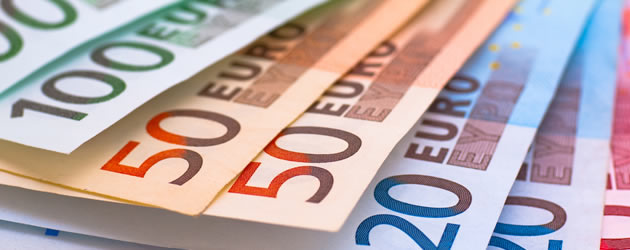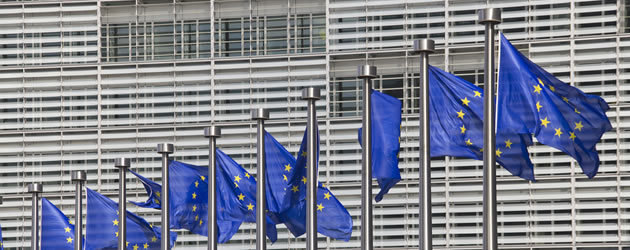What Would it Mean for Britain to ‘Leave the EU’?
It’s March, meaning the June EU Referendum – when Britain will vote for or against a Brexit – is less than four months away. As confusions and anxieties rise about what the right choice is, having control of the facts may make sense of the whole debate and help inform a decision that won’t be regretted later.
It’s a common misconception to interchangeably use or confuse the European Union (EU) with Europe itself and/or the ‘Eurozone’ (a collection of countries which have adopted the Euro currency) when they are not synonymous at all. The European Union and Eurozone are, in fact, completely different organisations within Europe, with different country memberships and different rules.
The EU: What is it, What Does it Do?
The EU is the European Union, a large governmental organisation with 28 member states. These member states are mostly made up of countries within the continent of Europe, but do not include all European countries. Key member states of the EU include Austria, Belgium, France, Germany, Ireland, Italy, the Netherlands, Spain and the United Kingdom.
There are even territories outside of Europe that are considered members of the European Union through the countries they are territories of. For example, the Canary Islands are part of Spanish territory and are a member of the EU through Spain, despite being geographically considered part of the continent of Africa.
Joining the European Union is not a necessity of being a European country, or even a mandate of being a territory that is part of a European country. Any European Union member state has the right, under the Treaty on European Union, to withdraw from the Union. Until now this has yet to ever happen – though Greenland and Algeria did withdraw from the EU’s predecessor, the European Economic Community (EEC).
The EEC was originally formed in 1957 under the ‘Treaty of Rome’ as a way to improve commerce throughout the European nations that joined the group. The European Union itself formally began in 1993 when it was created under the ‘Maastricht Treaty’, succeeding and absorbing the EEC. Upon the formation of the EU, the EEC was simply renamed the ‘European Community’ (EC) and was a core part of the EU’s structure until it was made redundant in 2009.
The EU’s Goals and UK’s Membership History
The United Kingdom itself had been a member of the EEC since 1973 and had played a vital role in the formation of the EU in the early 90s.
While the Economic European Community’s goal was the economic integration of states that wished to join, the European Union’s goals are on a much broader scale. The EU is not only driven to improve economic relations between its members but also more parity in social and environmental policies. Among them; foreign and military policies, as well as more universal police and criminal matters. As of 2009 the EU is even considered its own legal entity under the ‘Treaty of Lisbon’, a move that simplified the EU’s structure and is also responsible for the EC’s complete absorption and redundancy.
The EU has succeeded in its goal of increasing trade and has helped to soften blows for its weaker economic nations through co-operation of the member states. It currently produces one of the world’s largest Gross Domestic Products and given its resilience during the last Greek economic crisis could be seen as an organisation that is able to sustain itself confidently; regardless of crises in its member states.
However, some believe that being a member of the EU denies the UK of some functions it may enjoy as an independent country. This includes stricter border controls and having greater independent economic control, which some feel would help the Pound grow to greater heights without trade reliance from the Euro holding it back. Some believe that the funds the UK has to pay to remain a member of the EU are considerable enough to warrant withdrawal.
There are considerable retorts to these arguments, hence the ongoing debates. For example, others believe that making the UK’s borders stricter would also harm trade, the Pound’s growth not being impeded when other countries with a close trading relationship with Europe (such as Switzerland) still enjoy considerable growth, and propose that the economic benefits to being an EU member outweigh the price of membership.
Brits also don’t want to adopt the Euro… so what is UK’s Euro-situation?

The ‘Eurozone’: What is Britain’s Current Relationship with the Euro and Will it Change?
While the EU currently has 28 member states, the Eurozone only contains 19 of those. The Eurozone, put simply, is the collective name of the nations with the Euro (EUR) as their official currency. These nations include world-player economic regions such as Germany and France, as well as weaker turbulent nations like Greece.
This shared currency makes trade between powerful existing markets, like Germany, and emerging markets much easier. The ‘shared currency’ also has the potential to help nations like Germany continue comfortably on its economic path, as a strong independent German currency might have an exchange rate that many emerging markets could not afford, harming relations with currently faithful trade partners. Germany still enjoys many valuable trading partners in less-wealthy regions thanks to the Euro unifying their trade markets, making it accessible to nations that would otherwise be too economically far apart for strong trade relationships.
The Euro has never been a popular concept with the British public, and a significant proportion of the populace rejected the idea of losing the Pound back when the Euro first came into circulation in the early 2000s.
The British government wasn’t too keen either, as the then Chancellor of the Exchequer Gordon Brown designed a series of tests to decide whether or not the Euro was suitable to replace Pound Sterling. These ‘five economic tests’ involved questions about whether or not joining the ‘Economic and Monetary Union of the European Union’ (EMU) and the Euro would have a good effect on Britain’s economy or not – and it was quickly decided on multiple occasions that it would not.
While these ‘tests’ are no longer part of policy, as Gordon Brown left the government in 2010, Britain has not been and will not be obligated to join the Eurozone. The 1992 negotiations of the Maastricht Treaty, that originally formed the EU, had the UK secure itself an opt-out option with regards to the shared currency.
Most other EU member states are obligated to eventually adopt the Euro – however there are large and simple loopholes which countries that would rather keep their individual currency can take advantage of. A system known as the ‘European Exchange Rate Mechanism’ (or ERM, current version called ERM II) is a prerequisite for countries adopting the Euro – and the ERM II system is voluntary. Nations must have been in the ERM II for a minimum of two years before they may adopt the Euro officially and most of the EU member states to not use the Euro are not in ERM II – including the UK.
There are concerns that remaining in the EU would mean eventually adopting the Euro as Britain’s sole currency, a Britain that still thrives on and is attached to the Pound. Fortunately, Britain is in a better position than almost any other EU member to refuse the Euro for as long as it wishes, and tourist shops within the UK accepting Euro currency are not a sign of Euro assimilation beginning. On the contrary, this is a sign that Britain’s current relationship with the EU allows it to enjoy flexible and beneficial market freedom with countries that use the Euro. This is a particular boon for local businesses which regularly trade with and have custom from traders and expats from Eurozone countries.
Conclusion: Why is UK’s Relationship with the EU a Big Deal?
No country has left the EU since its formation in 1993. Currently, while it does bring with it some mandates that people may consider limiting, it has many considerable benefits for the economies of its member states and seemingly promises to help maintain their economic strength without holding them back – as in Germany’s case.
The UK breaking from the EU would be unprecedented and could trigger consequences that are entirely unpredictable. The resulting uncertainty could potentially leave Britain in economic turmoil for years, especially if, as some analysts predict, new market negotiations could go on for as long as a decade before settling down.
On the other side of the fence, many believe that the UK would not only survive but thrive outside the EU, and enjoy an improved trade and investment relationship with nations like China.
Whatever your personal feelings about a ‘Brexit’, debate surrounding the issue is likely to rage on until the historic vote on June 23rd. By keeping track of the latest developments and having an informed understanding of the pros and cons you can feel more confident of your decision come polling day.



